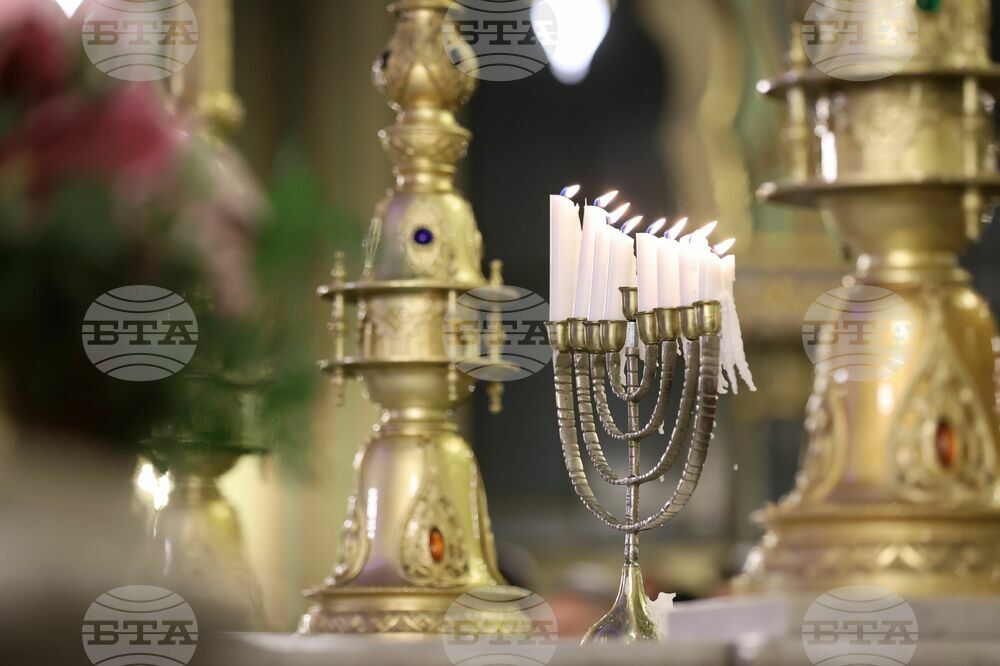site.btaUS Report on Global Religious Freedoms: Rise of Anti-Semitism in Bulgaria


On Wednesday US Secretary of State Anthony Blinken rolled out the US State Department's 2023 International Religious Freedom Report. The part of the report dedicated on Bulgaria highlights an increase in anti-Semitism and harassment of religious minorities within the nation.
The report suggests that despite a legal ban on the propagation of fascism or other antidemocratic ideologies, authorities rarely enforced the law, and souvenirs with Nazi insignias were available in tourist areas around the country. Some political parties and leaders continued to use antisemitic language and images.
The report continues that Jewish nongovernmental organization (NGO) Shalom repeatedly expressed concerns regarding escalating public hate speech and antisemitism, including on social networks, and offensive graffiti. The NGO highlighted participation of Bulgarian institutions in the popularization of incorrect theories and distortion of the history of the Jewish population under Bulgarian rule during World War II. Shalom also protested the participation of publisher Edelweiss, which prints books on Holocaust denial, in open-air book fairs..
The report also highlights that the U.S. Ambassador and other embassy officials held regular discussions with government officials about cases of religious discrimination, harassment of religious minorities, and initiatives to support interfaith dialogue. Embassy officials raised specific examples of harassment of religious communities with the Ministry of Foreign Affairs (MFA), including a rise in antisemitism.
in Bulgaria engaged in discussions with Shalom concerning the rise in anti-Semitic rhetoric. The US embassy condemned religious discrimination, intolerance, and hate speech targeting the Jewish community via social media posts and national events. In several meetings with Shalom, embassy officials discussed rising antisemitic rhetoric. Subsequently, the embassy denounced religious discrimination, intolerance, and hate speech against the Jewish community through social media posts and events throughout the country.
The report notes Sofia mayor’s ban of Lukov March, an event honouring General Hristo Lukov, a 1940s anti-Semitic leader, following public outcry against the event. The decision followed public protests.
Over the past year, Bulgarian courts have consistently rejected property claims by the Grand Mufti's Office, including mosques, schools, and land previously confiscated during the communist era.
It also details numerous instances of restricted religious freedoms and violent actions against members of religious minorities. In September, the local government in the town of Petrich cancelled an International Society for Krishna Consciousness’s (ISKCON) India Festival after a political party threatened to disrupt the event.
Jehovah’s Witnesses said discriminatory regulations restricting their religious practices remained in place in a few municipalities but were rarely enforced. They reported, however, that the local government in Varna had not responded by year’s end to their request to build a place of worship in the city, the document said.
Throughout the year, the National Council of Religious Communities (NCRC), in partnership with Sofia Municipality, held a series of events to promote religious tolerance, as noted in the report.
The document also highlights multiple instances where embassy officials engaged in discussions with Bulgarian Orthodox Church leaders, addressing various issues such as hate speech and interreligious dialogue. It underscores that the Bulgarian constitution guarantees freedom of religion and conscience.
Earlier this year, BTA shared that an interdepartmental working group had been launched at the Ministry of Justice to address anti-Semitism issues.
/YV/
news.modal.header
news.modal.text